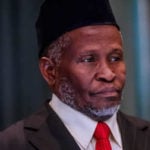The information given by the UNICEF Representative in Nigeria, Peter Hawkins, in a statement commemorating International Day of Education 2022, that Nigeria has the highest number of out-of-school children in the world is as galling as it is gnawing. Ten and a half million Nigerian children who ought to be in school are out of school? That number is more than the population of Republic of Togo. It is also higher than the population of Liberia and only about 1.5million short of the population of the Republic of Benin.
Ten and a half million children out of school? How did we get here? Over 10million children out of school in Nigeria? That is not only preposterous but alarmingly petrifying. This is more so when it is realised that children under 15 years of age constitute about 45 per cent of the country’s population and the out-of-school kids are not being engaged in any valuable venture. They are street kids, allowed to waste away their lives and make a mess of the potentialities of the nation. The 10.5 million Nigerian children out of school will, in a few years, translate to 10.5 million Nigerians who will grow up with no form of marketable skills. It means 10.5 million youths without any prospect of any worthwhile employment. It means 10.5 million potential bomb throwers, armed robbers, kidnappers, bandits, terrorists, pipeline vandals, drug traffickers, human traffickers and prostitutes. It means 10.5 million Nigerians who will be a pain in the neck of their compatriots and a bulwark to their country’s development.
Unfortunately though, as worrisome as this appears, the authorities in charge seem unmoved. If they were they would have put in place measures which would not only have stemmed the terrible tide but would have also reversed the troublesome trend. If those in charge had shown concern and had applied their hearts to the issue, the number would not have climbed from the 6.4 million it was in 2000 to its present level. The stark reality is that if nothing is done, the number will continue to rise and there may come a time when there would be more Nigerian children out of school than there are in school. I shudder to ponder on what that portends for the nation.
According to UNICEF, 40 per cent of Nigerian children in the North aged between six and 11, especially girls, do not attend any primary school. In the South-East, the number of boys shunning school is also alarmingly on the increase. Dropout rate in primary schools across the country is put at 30 per cent, while only 54 per cent transit to Junior Secondary Schools.
I think the question that should agitate the minds of policy makers and all well meaning nationals of the country is that despite the obvious advantages education confers on the educated, why is the idea of enrolling their children in schools still repugnant to some parents? Why is it that in spite of the Universal Basic Education programme of the government, school enrolment appears to be on a downward slide? If education is free up to the Junior Secondary Class Three, as we have been told repeatedly by federal and state governments, why are parents withdrawing their children from schools?
Why is it that while the enrolment figure in primary and secondary schools is nose diving, the number of children engaged in child labour is on the rise? A survey of any Nigerian street will reveal a daily increase in the number of young children taking to street trading, hawking ‘pure water’, kola nuts, sweets and biscuits or serving as motor boys and food sellers’ maids. Why is it that parents are more comfortable giving out their teenage daughters in marriage than giving them education? Are the schools meeting the expectations of the parents and pupils? Are the facilities good enough? Are the schools factoring in tribal and religious elements into the learning system?
Experts have come up with many factors; social, religious, tribal and economic, as being responsible for the preference of some parents to keep their children out of school but the Nigerian constitution has made the responsibility of educating every Nigerian child that of the government.
Section 18 (1) of the 1999 Constitution states, “Government shall direct its policy towards ensuring that there are equal and adequate educational opportunities at all levels.”
Section 18 (3) states that “Government shall strive to eradicate illiteracy; and to this end government shall as and when practicable provide (a) free, compulsory and universal primary education; (b) free secondary education; (c) free university education.”
So, the government is liable for every child that is out of school because it has the constitutional responsibility to ensure the education of all Nigerian children. The rising number of the nation’s out of school children is a failure on the part of the government at all levels. The government should apply the same zeal with which it fights pipeline vandalism, insurgency, armed robbery and kidnapping to ensuring that all Nigerian children are enrolled in schools. This is not just because it is a constitutional matter but especially because the continued existence of the country may well depend on it. This is why the decision of Sokoto State government to criminalise the act of parents not enrolling their children in school is highly commendable.
It has been argued that unemployment and poverty gave rise to the insurgency in the North, the rising armed robbery and kidnapping cases in the South West and the restiveness in the South-East but unless the syndrome of out of school children is fought with resolve and reversed, the current security challenges confronting the country would be a child’s play compared with what may happen in the future.






